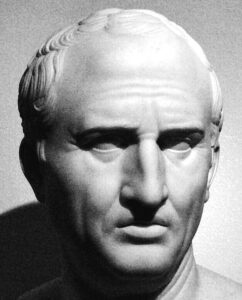 “When a government becomes powerful it is destructive, extravagant and violent; it is an usurer which takes bread from innocent mouths and deprives honorable men of their substance, for votes with which to perpetuate itself.” — Marcus Tullius Cicero
“When a government becomes powerful it is destructive, extravagant and violent; it is an usurer which takes bread from innocent mouths and deprives honorable men of their substance, for votes with which to perpetuate itself.” — Marcus Tullius Cicero
Originally Obama’s campaign slogan “Change” struck me as one of the stupidest rallying cries ever uttered, because obviously good change is good and bad change is bad. However, having had 16 years to think it over, I have changed! It is now clear that “Change” is one of the most ingenious political strategies ever devised. Why? Because it left everything to the imagination: whatever I wanted change to mean, that’s what it meant. Whatever kind of change I was hoping for, I was free to assume it was the kind of change Mr. Obama was striving to achieve. The slogan gave me the impression I was voting for myself.
In a world where everyone wants his truth to be the truth, one could hardly imagine a more effective rallying cry than “Change.”
We tend to think of change as an ongoing, never-ending, evolutionary process. But this is not how societies work; this is not how the pattern of how a civilization or country or country club unfolds and folds up. It seems no matter what the collective endeavor is, we learn, improve, reach a pretty high level of achievement … and then completely screw it up. The true process of progress, it seems to me, is to define the aspect of the collective endeavor in need of attention, and then do what we can to maintain, reach, or return to that high level of achievement and ride it out as long as we can.
For this approach to work, the underlying assumption can’t be change for the sake of change; instead, we must be prepared to change or change back. This is why we should not define progress as applying the broad brush of “liberalism” to every societal problem. Sometimes progress involves going backwards, from a less effective and just and reasonable state of affairs back to one that is more so. Sometimes laws need to be enacted; but sometimes, they need to be repealed. Sometimes criminal penalties need to be intensified; at other times, relaxed. Sometimes budgets must be increased; at other times, spending must be curbed. In fact, sometimes collective political measures have nothing to do with it: to really correct some societal issues people need to acquire a greater sense of personal responsibility, exert more self-control, educate themselves, etc. The point is, there is no one-size-fits-all political perspective that solves every problem.
This explains why the whole tension so prevalent today between “liberal” and “conservative” is simplistic and limiting. Besides forcing us into positions that may or may not solve a given problem, these labels practically ensure every solution will be a purely political solution. But any state of affairs we are discussing (to determine how we can get to, get back to, or maintain that high level of achievement) always has dimensions beyond the merely political. Moral, religious, philosophical, cultural, and psychological considerations, to name some of the more important, should never be taken off the table if we really want to solve our biggest problems, even our biggest political problems.
There are other problems with making public problems political problems. Political solutions, as just touched on, inevitably result in partial solutions at best — that’s one problem. Another problem is political solutions are always crafted first and foremost to benefit politicians, and secondarily to benefit the people who keep politicians in power. If you fall outside of either of those groups, political solutions only benefit you by chance or by mistake. With communism and fascism, the whole pretense of political solutions benefiting the citizenry is dispensed with; instead, it is put forward in no uncertain terms that the state is supreme and the individual counts for nothing other than in what he contributes to the state. Democratic governments become democratic in name only when the primacy of the citizen’s right to pursue happiness becomes an illusion, when the political landscape hides the dark terrain of a state existing for its own welfare under the bright and alluring colors of meaningless political slogans.
